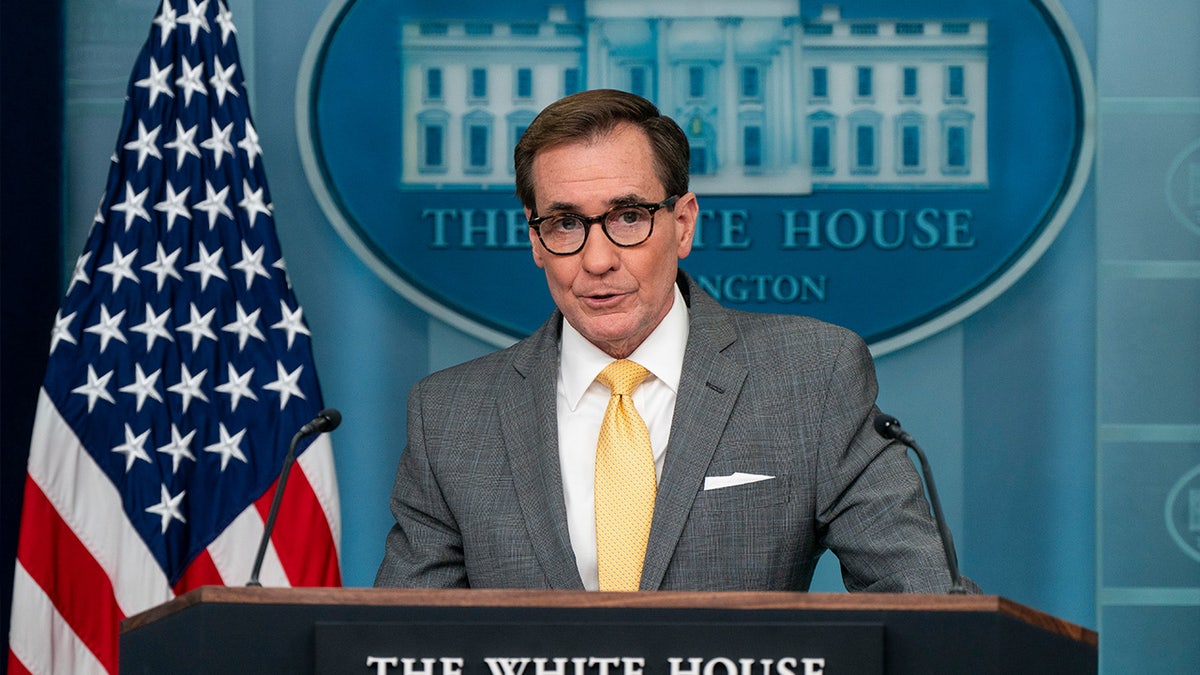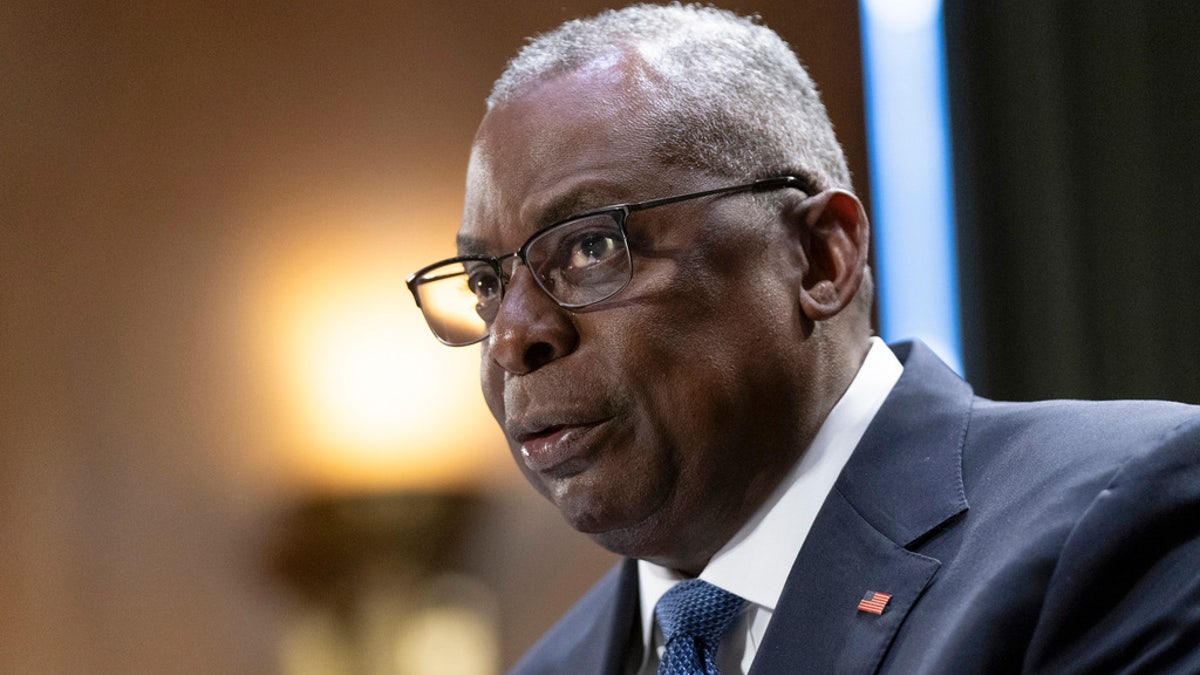Dr. Marc Siegel on Austin's prostate cancer surgery: ‘I think there is more obfuscation going on here’
Fox News medical contributor Dr. Marc Siegel breaks down U.S. Defense Secretary Lloyd Austin’s medical diagnosis and treatment.
Doctors are calling out the Pentagon for calling Defense Secretary Lloyd Austin's recent medical procedure to treat prostate cancer an "elective" surgery," saying that characterization is misleading.
The 70-year-old Defense secretary was hospitalized on Jan. 1 for complications from what officials are still calling an "elective" medical procedure that was later revealed to be related to prostate cancer. The Pentagon chief's cancer diagnosis was made public Tuesday. The administration had previously only disclosed on Friday that Austin had been hospitalized earlier that week.
The Biden administration has taken heat for its handling of Austin's absence, particularly on the issue of transparency, and, now, its facing backlash for telling the public last week when details of Austin's condition were scarce that he had undergone an "elective" surgery.
Speaking Tuesday with Fox News Digital, Fox News contributor Dr. Marc Siegel, said Austin's prostatectomy is "technically an elective surgery," but that characterization is misleading.

U.S. Secretary of Defense Lloyd Austin walks down the steps of the Pentagon to greet Romanian Prime Minister Marcel Ciolacu December 4, 2023 in Arlington, Virginia. Ciolacu and Austin were scheduled to meet to discuss a range of bilateral issues. (Photo by Win McNamee/Getty Images) (Win McNamee/Getty Images)
"Elective is divided into emergency and non-emergency. We take elective mostly to mean a nose job and so the word elective is misleading. This is prostate cancer," Siegel said. "Not all prostate cancer is operated on, but they decided to take it out because they thought it was aggressive-probably from the biopsy," he said.
Siegel said it is misleading to call Austin's prostate cancer surgery a minimally invasive surgery.
"Even though the da Vinci robot is technically considered minimally invasive surgery, it implies that it's a small operation. It would be better to define Austin's surgery as robotic prostate surgery."
"But going under anesthesia and general surgery is not a walk in the park that needs to be taken very seriously, even if our technology has improved greatly," Siegel said.

U.S. Secretary of Defense Llyod Austin's treatment for prostate cancer and his delay in notifying the White House was a focus of the briefing. (Joshua Roberts/Getty Images)
Dr. Nicole Saphier, a Fox News contributor and radiologist, told Fox News Digital that she would not consider a cancer surgery to be elective.
"Anyone would think that cancer treatment is not elective, but as we learned during COVID, the definition of elective is very different from a physician or even a patient’s perspective, Dr. Saphier said. "Cancer surgeries were delayed during the early stages of COVID when all elective cases were put on hold."
I would not consider a cancer surgery to be elective.
"Ultimately, cancer is life-threatening, so it is really arguing semantics whether you want to call cancer treatment, elective or not," she said.
"My personal opinion as a cancer specialist and human, I would not consider a cancer surgery to be elective, but the reality is, his prostate cancer was not immediately life-threatening at the moment," Dr. Saphier said. "Therefore, he was able to be scheduled on an outpatient, non-emergency basis."

Defense Secretary Lloyd Austin testifies before a Senate Appropriations Committee on Capitol Hill in Washington, Oct. 31, 2023. (AP Photo / Manuel Balce Ceneta / File)
Pentagon press secretary Maj. Gen. Pat Ryder defended the use of "elective surgery" in a Tuesday press briefing, deferring to medical professionals.
"I'm going to defer to medical officials on this," Ryder said. "Again, we released this information as soon as we had it. And so, again, I'm going to refer back to the statement and, you know, going forward, we will use that as the baseline in terms of describing it."
Ryder said that Austin's doctor previously defined his surgery as elective and the initial statement from the Pentagon was written after consulting his doctors at Walter Reed National Military Medical Center.
"So to my knowledge, that initial statement was coordinated in consultation with his doctors," Ryder said.

Secretary of Defense Lloyd Austin makes a joint statement with Israel Minister of Defense Yoav Gallant, after their meeting about Israel's military operation in Gaza, in Tel Aviv, Israel, Dec. 18, 2023. (AP Photo / Maya Alleruzzo / File)
Following Austin's surgery, he was hospitalized following "complications," Ryder said on Friday, Jan. 5.

White House Press Secretary Karine Jean-Pierre and NSC Coordinator for Strategic Communications John Kirby speak during a briefing to the media at the White House on January 9, 2024 in Washington, DC. (Joshua Roberts/Getty Images)
House Armed Services Committee Chairman Mike Rogers on Tuesday announced a formal inquiry into the lack of transparency surrounding Austin's hospitalization.
"With wars in Ukraine and Israel, the idea that the White House and even your own Deputy did not understand the nature of your condition is patently unacceptable," Rogers wrote in a letter to Austin on Tuesday.

U.S. Secretary of Defense Lloyd Austin participates in a meeting with Italian Defense Minister Guido Crosetto at the Pentagon on June 23, 2023 in Arlington, Virginia. (Kevin Dietsch/Getty Images)
Seigel said that Austin should use this experience as a "great teaching moment" and bring public awareness to prostate cancer.
"This should have been a great teaching moment and still could be for Black Americans, given the fact that they have 2.5 times greater risk of prostate cancer and 2.5 greater chances of dying," Siegel said.
"I would have liked to see the defense secretary come out for public awareness rather than hide-- and he still could," he said.
WHITE HOUSE LAUNCHING REVIEW OF CABINET PROTOCOLS AFTER DEFENSE SECRETARY'S HOSPITALIZATION: MEMO

U.S. Defense Secretary Lloyd Austin speaks during a plenary session at the 19th International Institute for Strategic Studies (IISS) Shangri-la Dialogue, Asia's annual defense and security forum, in Singapore, Saturday, June 11, 2022. (AP Photo/Danial Hakim)
Austin was admitted to Walter Reed National Military Medical Center on Dec. 22 and underwent surgery to treat the cancer. He developed the infection a week later.
Biden and other senior administration officials were not told for days about his hospitalization or his cancer.
According to the doctors, the cancer was detected when Austin had a regular screening in early December.
They said his prostate cancer was detected early, and his prognosis was excellent.
CLICK HERE TO GET THE FOX NEWS APP
The Pentagon did not immediately respond to Fox News Digital's request for comment.














































